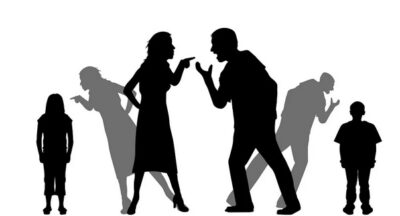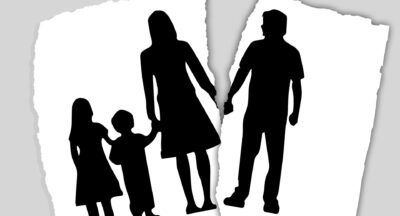
How can proper therapy help children of couples going through separation or divorce. The short and long term impact of broken families on children and their present behaviors inside and outside of school.
Separation and divorce are emotionally challenging experiences for families, particularly for children. The instability and emotional turmoil associated with a family breakup can significantly affect a child’s mental, emotional, and social well-being. However, proper therapy plays a crucial role in helping children navigate this difficult transition, providing them with coping mechanisms that can mitigate both short- and long-term negative effects. Let’s first discuss the short term effect on children when parents separate or divorce
Short-term effects of separation/divorce on children
The immediate impact of divorce on children can manifest in various ways, depending on their age, personality, and the level of conflict between parents. Some of the common short-term effects include:
1. Emotional distress
- Feelings of confusion, sadness, anger, guilt, or anxiety are prevalent.
- Fear of abandonment or concerns about stability can arise.
- Mood swings and emotional outbursts may occur as children struggle to process the change.
2. Behavioral changes
- Increased irritability, aggression, or defiance toward authority figures.
- Withdrawal from family and social activities.
- Difficulty concentrating on schoolwork and extracurricular activities.
3. Academic decline
- Decreased motivation and lower academic performance.
- Struggles with focus and attention due to emotional distress.
- Increased absenteeism or disinterest in school activities.
4. Social struggles
- Difficulty maintaining friendships due to feelings of isolation.
- Potential trust issues, making it harder to form new bonds.
- Increased dependence on one parent while distancing from the other.
Long-term effects of separation/divorce:
If not properly addressed, the impact of a broken family can extend into adulthood. Long-term consequences include:
1. Emotional and psychological struggles
- Higher risk of anxiety and depression.
- Difficulty managing emotions in future relationships.
- Fear of commitment and trust issues in personal relationships.
2. Poor relationship patterns
- Increased likelihood of experiencing relationship conflicts or divorces in their own future marriages.
- Struggles with attachment and intimacy due to unresolved childhood trauma.
3. Academic and career setbacks
- Lower self-esteem and confidence may hinder academic and career success.
- Increased likelihood of dropping out of school or underachieving.
- Difficulty in handling workplace relationships and professional growth.
4. Risky behavior and substance abuse
- Higher probability of engaging in risky behaviors such as drug or alcohol abuse.
- Increased chances of engaging in delinquent activities.
- Potential difficulty in managing stress and peer pressure.
How therapy helps children cope with separation/divorce
Proper therapy offers children a safe space to express their emotions, understand their situation, and develop healthy coping mechanisms. Some of the key benefits of therapy include:
1. Emotional expression and validation
- Encourages children to talk about their feelings in a non-judgmental environment.
- Helps them understand that their emotions are valid and normal.
- Assists in reducing guilt or self-blame associated with the divorce.
2. Building coping skills
- Equips children with tools to manage anxiety, sadness, and anger.
- Teaches relaxation techniques such as mindfulness and deep breathing.
- Provides problem-solving skills to handle stress and uncertainty.
3. Strengthening parent-child relationships
- Family therapy can help parents and children communicate more effectively.
- Encourages parents to co-parent in a way that prioritizes the child’s well-being.
- Helps parents understand their child’s perspective and emotions.
4. Enhancing academic and social performance
- Therapists work with children to improve concentration and motivation in school.
- Social skills training can help children rebuild friendships and trust.
- Therapy provides strategies to adapt to new family dynamics and school environments.
5. Preventing long-term psychological impact
- Early intervention reduces the likelihood of future mental health issues.
- Therapy fosters resilience, teaching children how to adapt to change positively.
- Encourages self-confidence and a positive outlook on relationships and family.
Types of therapy beneficial for children of divorce
1. Individual therapy
A licensed therapist works one-on-one with the child to address emotional distress, behavioral changes, and coping strategies tailored to their needs.
2. Family therapy
Helps improve communication between parents and children, ensuring that all family members understand and support one another during the transition.
3. Group therapy
Allows children to interact with peers who are also experiencing parental separation, helping them feel less isolated and providing shared coping strategies.
4. Play therapy (For Younger Children)
Engages children in play-based activities that allow them to express emotions non-verbally and process their experiences in a way that feels natural to them.
5. Cognitive Behavioral Therapy (CBT)
Helps children identify and challenge negative thoughts, replacing them with positive thinking patterns and effective coping mechanisms.
Divorce can have profound short- and long-term effects on children, but proper therapy provides them with the support they need to cope with emotional distress, build resilience, and maintain healthy relationships. By investing in professional therapy, parents can help their children navigate this challenging period and ensure a healthier, more stable future. Ultimately, prioritizing a child’s emotional and psychological well-being during a family breakup can make all the difference in their ability to thrive despite the challenges they face.

dr.dan
Related Posts
Election month is coming soon; tension within family may rise as to voting for the new leader. How to cope with family tensions during an election year and avoid conflict between parents and adult children?
Election time can be devastating for families voting for different leaders...
Avoiding these narcissistic parenting styles or your children may follow similar narcissistic behaviors. Some hope in sight.
To prevent your children from adopting narcissistic behaviors, it is crucial...
How can proper therapy help children of couples going through separation or divorce. The short and long term impact of broken families on children and their present behaviors inside and outside of school.
Separation and divorce are emotionally challenging experiences for families,...
Effective strategies in managing conflicts when one partner avoids arguments: Subtle ways to compromising to ensure a healthy relationship long term.
Managing conflicts in a relationship where one partner avoids arguments can...



